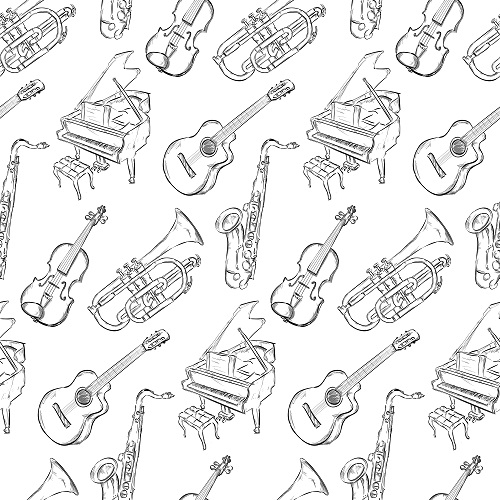Ear Training 1
Singing
Training the ears is perhaps one of the most important skills to be developed when studying an instrument. But what you might not know is that the best way to hear music better is not exactly on your instrument – but with your voice!
With all my instrumental students, I encourage singing. It’s the one guaranteed way to get your ears in shape. Guitar, Piano, and Ukulele students, and any other students learning instruments not played with the mouth, can start learning to sing their favorite songs once they know some basic chords. The Beatles are always a great place to start, but in most cases the student can present songs that they enjoy listening to, and the teacher can choose the ones that are at their level. But there are also exercises that the student can practice to further develop their ears!
Major Scales
I’ve discussed scales in my previous Music Theory blog entries. Any scales can be used to develop the ears, but let’s start with the easiest – the Major Scale.
Choose a key that starts on the lowest note you can comfortably sing – then play the scale in one octave up and down on your instrument. Once you are comfortable playing the scale, try singing along! You can sing any syllables you like – however you can use the classic Solfege system – if you are familiar with the Sound of Music then you probably know what I’m talking about! We use “Do” for the first note, “Re” for the second, and then “Mi, Fa, So, La, Ti”, finish with “Do” again for the octave, and then backwards! Or you can just sing the numbers of each scale tone “1, 2, 3, 4, 5, 6, 7, 8” and then reverse.
Once you can do this with your instrument relatively in-tune, try playing the first note and only singing the next few and see if you can stay on key! Check yourself every few notes to see that you’re not going too flat or sharp, then start to leave more notes out until you can sing the whole scale and land the octave at the right pitch!
Finding Your Voice
One doesn’t need to be a great singer to use these exercises to develop the ears, but you need to be close enough to not lose your pitch over the course of a scale. And while you can practice this on your own, it’s best to work on it with your teacher each week to get feedback on your progress and to help guide you on where your strengths and weaknesses are!

